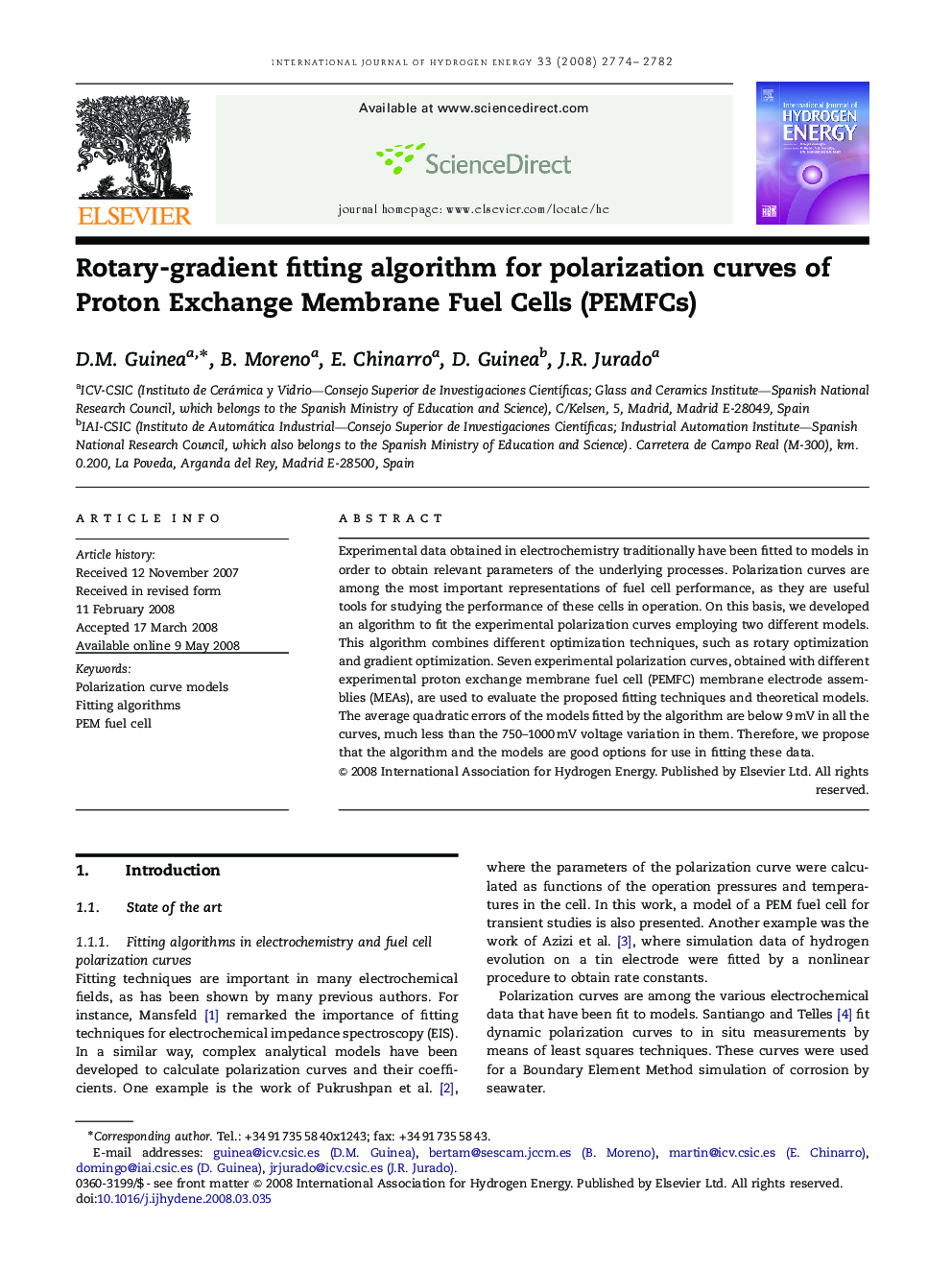| Article ID | Journal | Published Year | Pages | File Type |
|---|---|---|---|---|
| 1281557 | International Journal of Hydrogen Energy | 2008 | 9 Pages |
Experimental data obtained in electrochemistry traditionally have been fitted to models in order to obtain relevant parameters of the underlying processes. Polarization curves are among the most important representations of fuel cell performance, as they are useful tools for studying the performance of these cells in operation. On this basis, we developed an algorithm to fit the experimental polarization curves employing two different models. This algorithm combines different optimization techniques, such as rotary optimization and gradient optimization. Seven experimental polarization curves, obtained with different experimental proton exchange membrane fuel cell (PEMFC) membrane electrode assemblies (MEAs), are used to evaluate the proposed fitting techniques and theoretical models. The average quadratic errors of the models fitted by the algorithm are below 9 mV in all the curves, much less than the 750–1000 mV voltage variation in them. Therefore, we propose that the algorithm and the models are good options for use in fitting these data.
